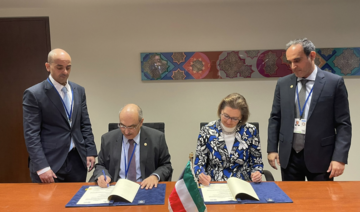KARACHI: Shortly before the end of 2017, Pakistan’s government had devalued the national currency. The trend continued in the following year with the rupee depreciating by 32 percent in 2018, having a detrimental effect on the country’s overall economy.
The currency which traded at about Rs84 against the US Dollar in 2010 surged against the greenback from Rs97 to Rs105 between 2013 and 2017, with the government deciding to devalue the currency to Rs110 on December 8, 2017. Ever since then, the rupee has witnessed five rounds of devaluation against the US Dollar in 2018, leaving it at a perilous level of Rs139.
The pressure on the rupee continued to build up after the country’s foreign exchange reserves started to weaken from $24.6 billion — including $19.4 billion held by the State Bank of Pakistan (SBP) in October 2016 — to $14 billion. This also included $7.4 billion held by the SBP until December 21, 2018, mainly due to increasing imports and decreasing exports.
The rupee’s devaluation took place against the backdrop of declining forex reserves, exerting pressure on the country’s capital market, external trade, and interest rate. Financial gurus termed 2016 and 2017 as tough years for the country’s economy — a trend which continued in 2018 after the country witnessed a political transition with the end of the five-year tenure of the Pakistan Muslim League-Nawaz (PML-N) government and the emergence of the Pakistan Tehreek-e-Insaf (PTI) administration.
“Backed by high oil prices, the trade deficit of the country continued to swell. During the last two years, Pakistan has had to suffer from record high fiscal deficit. These factors increased pressure on the country’s foreign exchange reserves and, ultimately, on the rupee which could not sustain pressure,” Aqeel Karim Dhedhi, Chairman of AKD Group, one of Pakistan’s biggest business conglomerates, told Arab News on Tuesday.
The impact of the country’s tough fiscal position also affected the bourse, which turned from the best performing market in 2016 to the worst equity market witnessing a fall of 8.41 percent in 2018. “The equity market continued to fall for the second consecutive year. This fall in two successive years came after a period of 22 years. Pakistan lost $26 billion of market capitalization in 2018,” Muhammad Sohail, CEO of Topline Securities, said.
The biggest rally of the year was seen when Saudi Arabia promised to provide a $6 billion financial package in October 2018 after Prime Minister Imran Khan’s visit to the Kingdom. The market gained 12 percent – or 4,289 points – in the wake of that trip.
However, investors remained skeptical due to the key interest rate being more than two percent, in addition to more than 20 percent currency devaluation, high external and fiscal deficit, and an uncertain outcome of negotiations with the International Monetary Fund (IMF) to fill the external financing gap of $21-22 billion. A lack of clarity about the overall economic roadmap didn’t help with the cause either.
In the backdrop of the emerging economic situation, Pakistan’s central bank was also moved to hike it’s key interest rate by 4.25 percent to 10 percent on November 30, 2018 – at a six-year-high level – after dipping to a 40-year low at 5.75 percent in May 2016.
“The cumulative outcome of the rupee’s devaluation, interest rate hike, and inflation were seen in the markets where businessmen had to face harsh conditions in 2018,” Atiq Mir, Chairman of Karachi Tajir Ittehad, an umbrella of nearly a 100 trade associations, told Arab News.
The CPI inflation General increased by 6.5 percent on a year-on-year basis in November 2018. The lowest level of inflation witnessed was at 3.2 percent in March 2018, according to the Federal Bureau of Statistics.
However, experts believe that the measures taken by the government to discourage imports, smuggling and under-invoicing will yield a positive result in 2019. “These steps, including phasing out of the black economy, will have a positive impact on the local industry,” Dhedhi said, adding: “I don’t think rupee will be further devalued.”
“The measures to restrict imports and declining trend in the international oil market are likely to create a positive impact in 2019 and may also reduce current account deficit,” Muzzamil Aslam, a senior economist, said optimistically.
“I believe the worst is behind us and there are some silver linings that can give us hope and confidence about the future. The recent efforts made on the macro front have created room for managing external and fiscal challenges in the short run. Meanwhile, the policy strategists are crafting the long-term sustainable policy for growth and eventual prosperity,” Khurram Schehzad, a senior financial analyst and CEO of Alpha Beta Core, said.
“I am confident that 2019 will see Pakistan set course on a path of sustained prosperity & peace and lay the foundation of a society of equal opportunity for all its citizens,” Asad Umar, Pakistan’s finance minister, had tweeted on New Year’s Eve.
The optimism exhibited by experts and stakeholders was further bolstered by the astounding performance of the equity market on the first day of 2019. Pakistan’s stock market greeted the New Year with the benchmark KSE 100 index posting gains of 980 points.
Pakistan's economic carnage over in 2019, say analysts
Pakistan's economic carnage over in 2019, say analysts
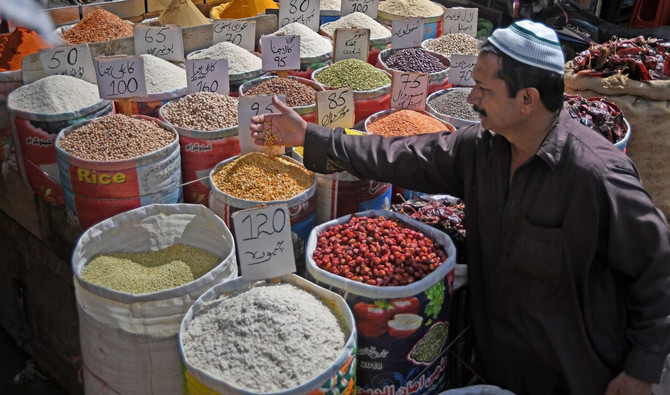
- Depleting foreign exchange reserves, swelling trade deficit, increasing interest rate, and spiraling inflation add to the pressure
- Several experts remain hopeful and tell Arab News that the worst may be behind us
Saudi bank loans increase by 11% in March to hit $712bn, fueled by real estate activities
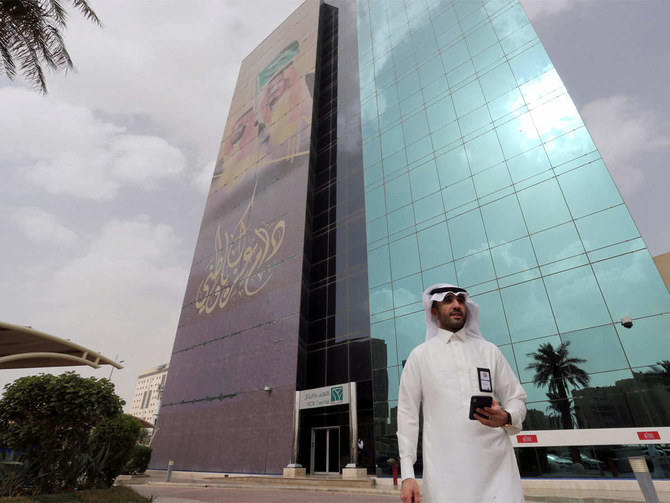
RIYADH: Saudi banks extended loans worth SR2.67 trillion ($711.5 billion) in March, marking an 11 percent increase as compared to the same month in 2023, according to the latest official data.
Figures released by the Saudi Central Bank, also known as SAMA, showed personal borrowings accounted for 35 percent of this growth, while the remaining 65 percent went to the corporate sector, particularly for real estate activities, as well as electricity, gas, and water supplies.
Real estate financing for corporate dealings specifically surged by 27 percent in the third month of the 2024, marking the highest annual growth rate in 10 months, reaching SR275.2 billion.
A study by Mortor Intelligence, which used 2023 as a base year, estimated the Kingdom’s real estate market at $69.51 billion in 2024, and expects it to reach $101.62 billion by 2029, growing at a compounded annual growth rate of 8 percent between 2024 and 2029.
The surge in real estate and construction endeavors may have heightened the need for debt-based financing primarily sourced from the local banking sector. Saudi banks play a central role in the provision of loans for real estate projects.
According to SAMA data, new retail residential mortgage loans experienced a notable increase, reaching a 14-month high at SR7.63 billion in March. This marked a 5 percent rise compared to the amount granted in the same month last year and a 10 percent increase from the previous month.
In March, lending for home purchases accounted for the largest portion, comprising 64 percent of new mortgages to individuals, totaling SR4.91 billion. The most notable growth, however, was observed in apartment loans, surging by 28 percent to reach SR2.24 billion. Meanwhile, land loans experienced a more modest growth of 4 percent, reaching SR474 million in new mortgages.
One factor contributing to this growth could be the need for residential properties from expatriates arriving in the Kingdom, along with government initiatives aimed at modernizing the financial system.
In a March study by Knight Frank, a notable trend emerged among expatriates, with 68 percent expressing a strong preference for owning an apartment rather than a villa. This inclination was especially prominent among individuals aged 35-45 and 45-55.
Growth in lending for electricity, gas and water supplies came as the second contributor in corporate loans after real estate, registering an annual rise of 27 percent to reach SR147.42 billion in March.
According to an April report by Global Data, the key sectors in the Saudi Arabia power market are the residential sector, commercial sector, industrial sector, and others. In 2023, the residential sector had the dominant share in the power consumption market.
The American International Trade Administration also stated in a January report that Saudi Arabia has experienced rapid economic and population growth since the discovery of oil. The population is projected to increase to 40.1 million by 2030.
Due to limited water resources, the country continues to invest in desalination facilities to meet rising water demands, aiming to deliver 2.18 billion cubic meters per year of desalinated water.
The Ministry of Environment, Water, and Agriculture has allocated $80 billion for water projects, with the wastewater treatment services market also expanding steadily according to the report. In 2021, Saudi Arabia built 133 wastewater treatment facilities, marking a 14.66 percent increase from the previous year.
SAMA data also revealed that financing for professional, scientific, and technical activities soared by 54 percent, hitting SR6.4 billion, marking the highest annual growth rate among sectors.
Education loans also showed robust growth, with an annual increase of 28 percent to reach SR6.27 billion. Additionally, financing for administrative and support service activities rose by 20 percent, totaling around SR34.22 billion.
While the proportion of lending allocated to the scientific and education sectors may currently be modest, the Saudi government acknowledges their pivotal significance in driving the Kingdom’s comprehensive transformation agenda.
Recognizing the paramount importance of innovation and fostering a culture of scientific inquiry, the government has implemented diverse initiatives aimed at nurturing these sectors.
These efforts are believed to have played a part in the gradual increase in lending support extended to these sectors by financial institutions. As the Kingdom continues to prioritize knowledge-based industries and endeavors, further advancements and investments in these areas are anticipated to amplify, propelling the nation towards its ambitious developmental goals.
Saudi Arabia’s car imports surge to 160k over last 2 years: official figures

RIYADH: Saudi Arabia’s car imports in 2023 hit 93,199, utilizing all modes of transportation — land, sea, and air — reflecting nearly a 40 percent growth from the previous year.
In the last two years, the Kingdom has imported a total of over 160,000 cars, with 66,870 imports recorded in 2022 alone, according to Hamoud Al-Harbi, the spokesperson for the Zakat, Tax, and Customs Authority, reported Saudi Press Agency.
This positions Saudi Arabia as one of the largest markets globally for automobiles, accounting for more than half of the car sales in the Gulf Cooperation Council countries, and ranking among the top 20 markets worldwide.
According to the authority’s spokesperson, cars were primarily imported from Japan, India, South Korea, the US, and Thailand to the Kingdom during the past two years.
Wael Al-Dhayyab, the official spokesperson for the Saudi Standards, Metrology, and Quality Organization, underscored the rigorous efforts undertaken by the Vehicle Inspection Unit in 2023. They inspected 60,473 vehicles to uphold the highest technical and safety standards.
Concurrently, 18,150 energy efficiency certificates were issued for tire products, highlighting SASO’s commitment to ensuring tire quality and safety in the Saudi market.
Al-Dhayyab emphasized that these endeavors demonstrate the organization’s dedication to enforcing stringent standards, fostering tire quality, and safety.
Moreover, he stressed the body’s pivotal role in advancing energy efficiency and endorsing initiatives aimed at enhancing product safety and economic growth.
Additionally, Al-Dhayyab noted a significant milestone in 2023, with SASO awarding 172 conformity certificates for electric vehicles, witnessing a 465 percent surge from the previous year.
This emphasizes the organization’s crucial role in facilitating the shift toward sustainable energy adoption.
Furthermore, he pointed out that the body issued 1,505 fuel efficiency cards for new light vehicles, indicating its commitment to promoting eco-friendly transportation solutions.
The surge in the import of motor vehicles led to Saudi banks witnessing a 7.67 percent increase in letters of credit to the private sector in the first 11 months of 2023, compared to the same period the previous year.
The data, released by the Saudi Central Bank, revealed that settled LCs and received bills to this sector hit SR155.19 billion ($41.38 billion).
LCs, a financial document issued by a bank, guarantee payment to the seller upon fulfilling specified conditions in a trade transaction.
The growth is primarily attributed to an upsurge in the import of motor vehicles, accounting for around 75 percent of the overall increase.
The import value in this category reached SR39.7 billion, marking a 26.29 percent increase, the data showed.
UAE’s Mubadala Capital plans $13.5bn investment in Brazil’s biofuel sector
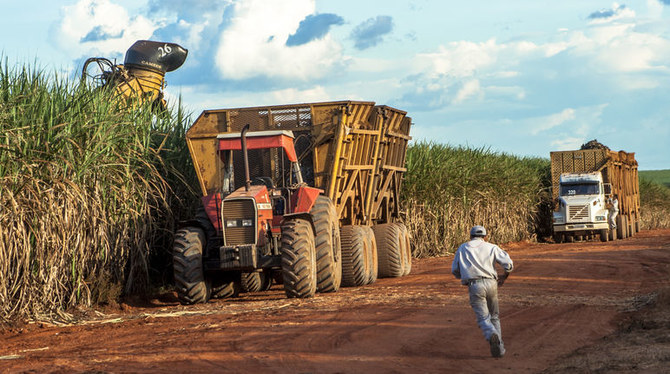
RIYADH: Brazil’s biofuel market is set for substantial growth as UAE’s Mubadala Capital has committed to invest $13.5 billion over the next decade.
Oscar Fahlgren, head of Brazil strategy at the sovereign wealth fund, disclosed the budget for the initiative during an interview with the Financial Times. He divulged the details of the fund’s plans to produce renewable diesel and sustainable aviation kerosene primarily utilizing non-food plant matter.
In his interview with the newspaper, Fahlgren said Mubadala’s Brazilian subsidiary, Acelen, will initiate the development of a large-scale biofuel project by 2026.
The fund’s executive stated that the funds will be sourced through a blend of equity and debt over a span of five to 10 years.
The endeavor will encompass five modules, each valued at $2.7 billion, housing a new biorefinery capable of processing 20,000 barrels of fuel per day. Additionally, it will include the necessary infrastructure and cultivated acreage to sustain the input crop.
“It’s all about feedstock (which) in reality is agriculture. And Brazil is probably the best-placed country on the planet when it comes to agricultural proficiency because of the climate and the fertile soil,” said Fahlgren, adding, “Brazil is to agriculture what Abu Dhabi is to oil.”
The project will also include the conversion of an existing oil refinery in the northeastern Brazilian state of Bahia acquired from government-owned Petrobras in 2021.
“It’s a very important capital project,” Fahlgren said. “I see tremendous opportunity to invest in the green energy transition space in Brazil,” he added.
Mubadala’s venture into bioenergy will leverage its existing $6 billion investments in the country, constituting approximately a quarter of the group’s global portfolio.
“We’ve been very active investing in Brazil, for the past 10-plus years, in an environment where most foreign investors have been shying away,” Fahlgren said.
Mubadala also plans to open a stock exchange in Brazil next year through its Americas Trading Group.
“Brazil is a very large country. It has only one stock exchange. And I think that’s suboptimal infrastructure for the players that operate in this segment,” said Fahlgren.
“It will probably be a staged launch — perhaps start with equities, then expand. No asset classes are off the table.”
The asset management arm of the Emirati sovereign wealth fund is increasing its bets on Latin America’s largest economy, where its holdings span metro lines and medical universities to a majority stake in the local owner of the Burger King brand.
“We’re very bullish on the investment climate in Brazil right now and the opportunities we see,” said Fahlgren. “We do have a number of assets that are relatively mature today, and could be potential exit candidates in the not-too-distant future,” he added.
Eastern Province showcases environmental opportunities during investment forum
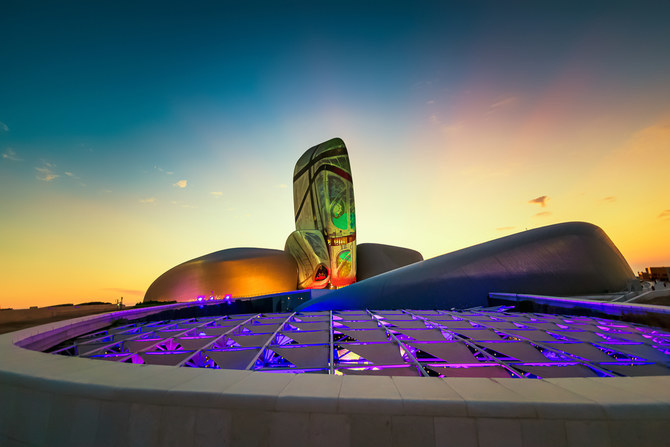
RIYADH: Investors eyeing environmental opportunities in Saudi Arabia’s Eastern Province stand to benefit from a forum held on May 5, amidst efforts to preserve natural resources.
Organized by the Eastern Chamber under the theme “Restoration and Sustainability,” the Environmental Investment Forum 2024 aims to underscore the importance of ecological preservation.
The event, patronized by Prince Saud bin Naif, Gov. of the region, also delves into the effects of environmental regulations and legislation on the business sector, the Saudi Press Agency reported.
Badr bin Suleiman Al-Ruzaiza, chairman of the regional chamber, emphasized the importance of environmental protection within the framework of the Kingdom’s Vision 2030.
He stressed that the country’s ambitious plan views environmental stewardship not only as a religious and ethical imperative but also as a humanitarian duty.
Al-Ruzaiza elaborated that Vision 2030 aims to reduce pollution by improving waste management efficiency across diverse sectors. He underscored the Kingdom’s proactive approach in addressing environmental issues domestically and globally.
The chairman emphasized the paramount significance of the environmental sector in conserving renewable natural resources.
He stressed its pivotal role in laying the essential groundwork for achieving holistic and sustainable growth, ensuring food security, and improving overall quality of life.
He stated that the forum seeks to shed light on the importance of the environment and ways to preserve it, addressing the impact of environmental regulations and legislation on business sectors.
Additionally, it aims to review investment opportunities for businesses in the environmental sector, as well as available financing channels for projects in this vital sector. This represents environmental investment as a key driver and effective element in achieving sustainable development.
Al-Ruzaiza clarified that the forum supports environmental protection practices, presents experiences and solutions, and aims to expand knowledge about investment opportunities related to sustainability. It also focuses on methods for addressing them and implementing associated mechanisms.
He also highlighted the array of sustainability initiatives and programs initiated by the Kingdom to foster green investments across various sectors. Furthermore, he emphasized the nation’s objective of increasing its reliance on clean energy sources, aiming to achieve 50 percent of total energy consumption by 2030.
He also noted the country’s determination to double its spending on investment and financing projects that operate in areas supporting sustainability.
The forum comes against the backdrop of the Eastern Province’s municipality recently unveiling a range of diverse investment opportunities, both permanent and temporary, across cities and governorates in the region.
The municipality had cataloged over 20,000 investment assets covering an area exceeding 116 million sq. m., serving as a database for significant growth in the region, as reported by SPA in March.
These encompass the development of waterfronts, plots, and infrastructure, as well as transportation, markets, and advertising billboards.
Additionally, opportunities for recreational and tourist centers are available. These also cover sports activities, factories, and exhibitions, along with warehouses, workers’ housing, and various tourist and commercial investment sites.
Kuwait’s non-oil sector steadies in April, UAE maintains growth in April

RIYADH: Non-oil activities in Kuwait demonstrated steady growth in April, buoyed by effective advertising and competitive pricing, supporting the expansion in new orders, an economy tracker revealed.
According to the latest Kuwait Purchasing Managers’ Index by S&P Global, the country’s PMI dipped to 51.5 in April from 53.2 in March.
A PMI reading above 50 indicates growth in the non-oil private sector, while readings below 50 signal contraction.
The report noted that job creation scaled back for the first time in eight months as companies aimed to minimize costs, while the rate of purchase price inflation was one of the sharpest on record in April.
According to the survey, this reduction in workforce numbers, coupled with a shortage of available raw materials, led to a buildup of backlogs of work in April.
“The slowdown in growth seen in April is not cause for immediate alarm as Kuwaiti firms were still able to generate solid expansions in new business and output at the start of the second quarter,” said Andrew Harker, economics director at S&P Global Market Intelligence.
The report mentioned that output prices increased only modestly in April, as companies endeavored to limit price hikes to customers by offering discounts.
Furthermore, input costs also surged sharply in April, driven by a marked rise in purchase prices.
“Growth continued to be predicated, at least in part, on competitive pricing. This put pressure on margins given rapidly increasing input costs, however. In a bid to limit expenses, firms cut back on employment numbers, thereby restricting the extent to which they were able to fulfill orders,” said Harker.
He added: “There are clearly risks that this will prove unsustainable and so companies will be hoping that either cost inflation moderates or that demand strengthens sufficiently to reduce the need for discounting in the months ahead.”
UAE maintains strong growth
Meanwhile, in another report released last week, S&P Global revealed that the UAE’s non-oil private sector maintained robust output growth in April. The Emirates’ PMI reached 55.3, down from 56.9 in March but remained firmly above the 50 mark, indicating expansion.
According to the survey, this slowdown was attributed to floods and rains that hit the country in April.
“April data highlighted strong overall growth across the UAE non-oil private sector as buoyant domestic economic conditions helped to support long-term business expansion plans. However, the latest survey signaled a sharp slowdown in new business gains in the wake of heavy rainfall and flooding,” said Tim Moore, economics director at S&P Global Market Intelligence.
He added: “Companies operating in Dubai recorded a particularly acute loss of sales momentum as adverse weather disruptions hit business and consumer spending.”
S&P Global revealed that backlogs of work increased considerably in April, attributed to temporary business disruptions and heightened pressure on operating capacity.
The report added that non-oil businesses in the UAE remained optimistic about future output over the next year, although the level of optimism eased, dropping to its lowest reading since January.
“Non-energy businesses are nonetheless still highly upbeat about their year ahead growth prospects. Many commented on strong sales pipelines and swift recovery from the impact of heavy rainfall,” noted Moore.
According to the survey, higher levels of employment were recorded in April, driven by new project starts and resilient demand conditions.





